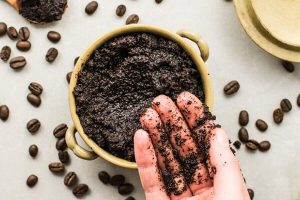Can You Get Rid of Coffee Grounds Down the Sink? - Exploring Implications
Can You Get Rid of Coffee Grounds Down the Sink? - Exploring Implications
Blog Article
In this article down the page you'll find a lot of extremely good details on the subject of What are the consequences of putting coffee grounds.

If you're a passionate coffee drinker, you could be questioning the best means to get rid of your coffee grounds. While it might seem practical to wash them down the sink, this method can lead to a number of issues for both your plumbing and the atmosphere. In this article, we'll check out whether it's secure to put coffee grounds down the sink and go over alternative disposal techniques to take into consideration.
Threats of Putting Coffee Grounds Down the Sink
Plumbing Issues
One of the primary worry about getting rid of coffee premises down the sink is the danger of blocking your pipes. Coffee grounds do not liquify in water and can gather in time, forming a thick sludge that can block drains pipes and cause expensive plumbing repair work.
Ecological Impact
Beyond the potential damages to your plumbing, placing coffee grounds down the sink can likewise hurt the atmosphere. When cleaned into the sewage system, coffee grounds can add to blockages in sewer lines and treatment centers. Additionally, the high concentration of raw material in coffee premises can deplete oxygen degrees in waterways, adversely affecting aquatic life.
Alternatives to Disposing of Coffee Grounds
Composting
One eco-friendly alternative for taking care of coffee grounds is to compost them. Coffee premises are rich in nitrogen, making them an outstanding addition to compost heap or containers. As they disintegrate, they add nutrients to the soil, boosting its fertility and appearance.
Trash Disposal
If you don't have a composting arrangement, an additional option is to simply throw your coffee grounds in the trash. Be sure to seal them in a compostable bag or container to stop odors and leakage. While this method doesn't offer the same environmental advantages as composting, it's a secure and hassle-free method to throw away coffee premises.
Tips for Proper Disposal
Utilize a Sink Strainer
To prevent coffee premises from entering your sink's drainpipe in the first place, consider making use of a sink filter. These economical devices catch solid particles, consisting of coffee grounds, stopping them from triggering clogs.
Normal Maintenance
Despite exactly how you select to throw away your coffee premises, it's necessary to keep your plumbing consistently. Schedule regular drain cleanings to eliminate any build-up and ensure that your pipelines continue to be clear and free-flowing.
Conclusion
While it may be appealing to wash coffee grounds down the sink for ease, doing so can have severe consequences for your plumbing and the environment. Rather, consider composting your coffee premises or throwing away them in the garbage. By adopting accountable disposal practices, you can enjoy your coffee guilt-free while decreasing your ecological footprint.
Coffee Grounds Down The Drain: Are They OK?
Can Coffee Grounds Go Down the Sink?
You may be thinking, “But I pour them down the sink drain every day and I’ve never had a clogged drain!” You see, coffee grounds come from coffee beans, which are virtually rock hard by the time they’re ground and brewed. You certainly wouldn’t want to grind up the pit from a peach, apricot, or nectarine that is about just as hard because they wouldn’t break down like other foods, and it’s the same with coffee beans!
If you usually grind coffee beans in the garbage disposal because it seems the cleanest and convenient, we don’t fault you for that. And anyone who has ever had to clean up the trash with spilled coffee grounds after a dog got into it would understand the rationale. Unfortunately, coffee grounds do not break down in water, so instead of grinding up and washing away as normal foods do in a garbage disposal, they clump together and as time goes by, the grounds can form a clump and pack the drain until it develops a clog.
What to Do With Coffee Grounds
So, what do you do with coffee grounds if you can't put them down the drain? You could of course just throw them in the garbage, but we encourage you to give these practical uses for them a try!
Since coffee grounds contain key minerals for plant growth, you can use them to fertilize your garden. Coffee grounds not only fertilize gardens because they are mineral-rich, but they are also great at absorbing contaminants in the soil, particularly heavy metals. Coffee grounds are said to attract worms, which help gardens flourish. You can use coffee grounds as fertilizer by sprinkling them around your plants. You can compost your coffee grounds and use them at a later time. Coffee grounds are great insect repellents when you place them in bowls or sprinkle them around the areas you want to repel insects. To remove fleas from your dog or cat, simply shampoo your pet then rub coffee grounds throughout their fur. Rinse them off and dry as usual. Like baking soda, used coffee grounds can eliminate odors. You can place them in a bowl in the fridge and let them do the work! Mix coffee grounds with coconut oil for a wonderful face or body scrub, or to reduce the appearance of cellulite. https://www.wintershomeservices.com/blog/2019/august/coffee-grounds-down-the-drain-are-they-ok-/

Do you really like more info about Can Coffee Grounds Go Down the Drain or Sink?? Try leaving a comment down the page. We would be interested to hear your responses about this page. Hoping to see you back again soon. Liked our posting? Please share it. Help another person find it. We cherish reading our article about Can You Put Coffee Grounds in the Sink Garbage Disposal?.
Get Quote Now Report this page